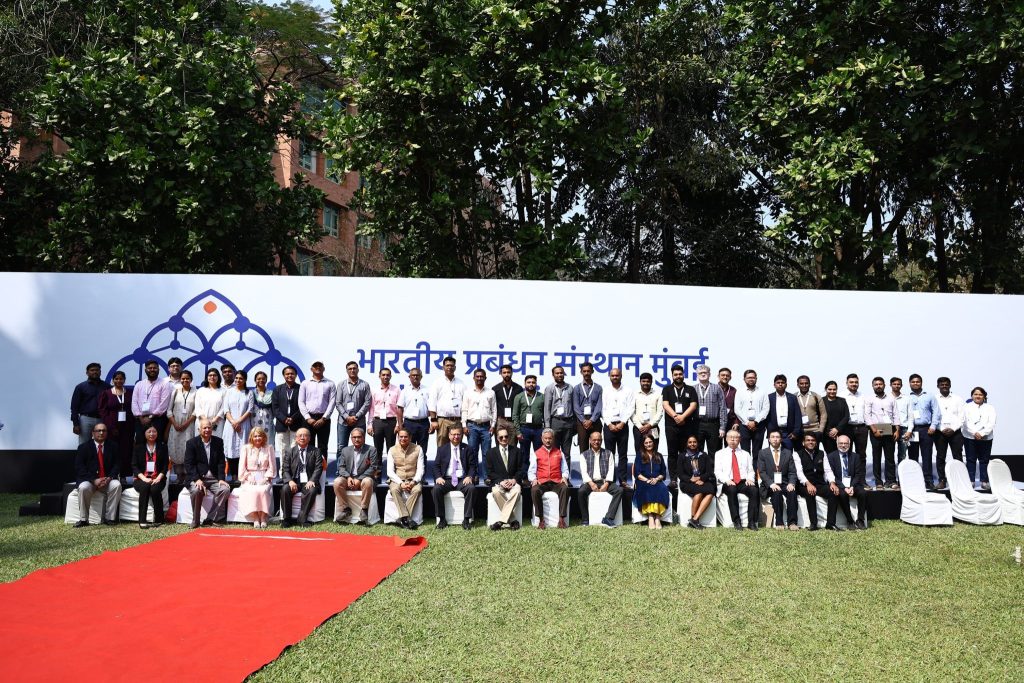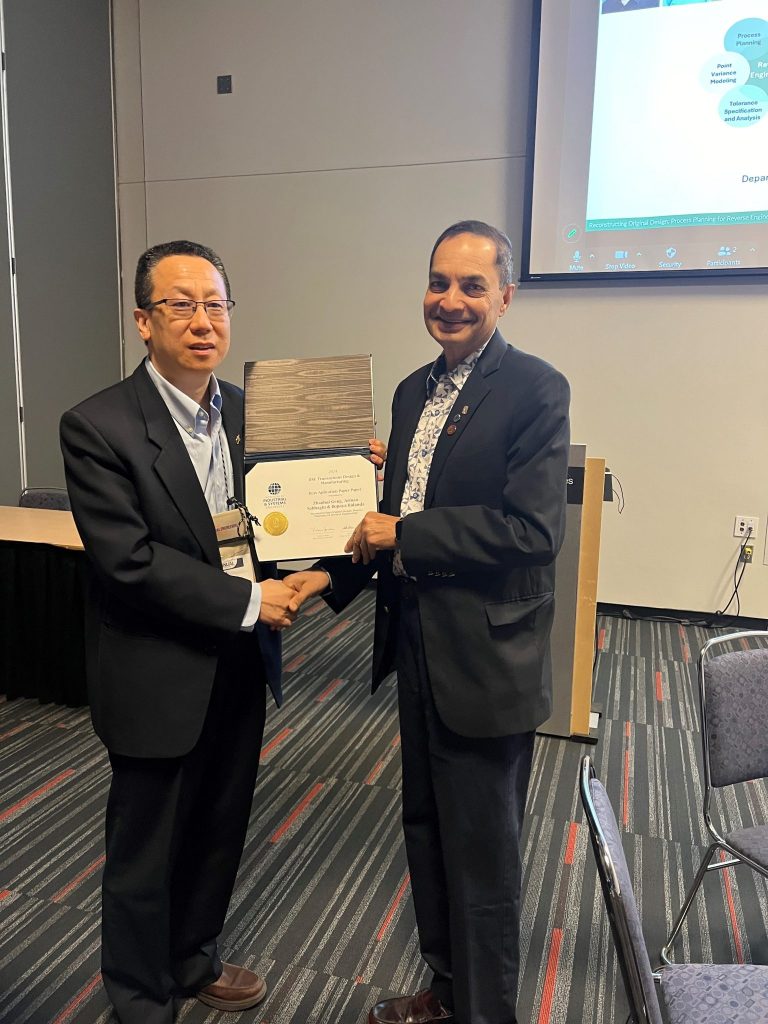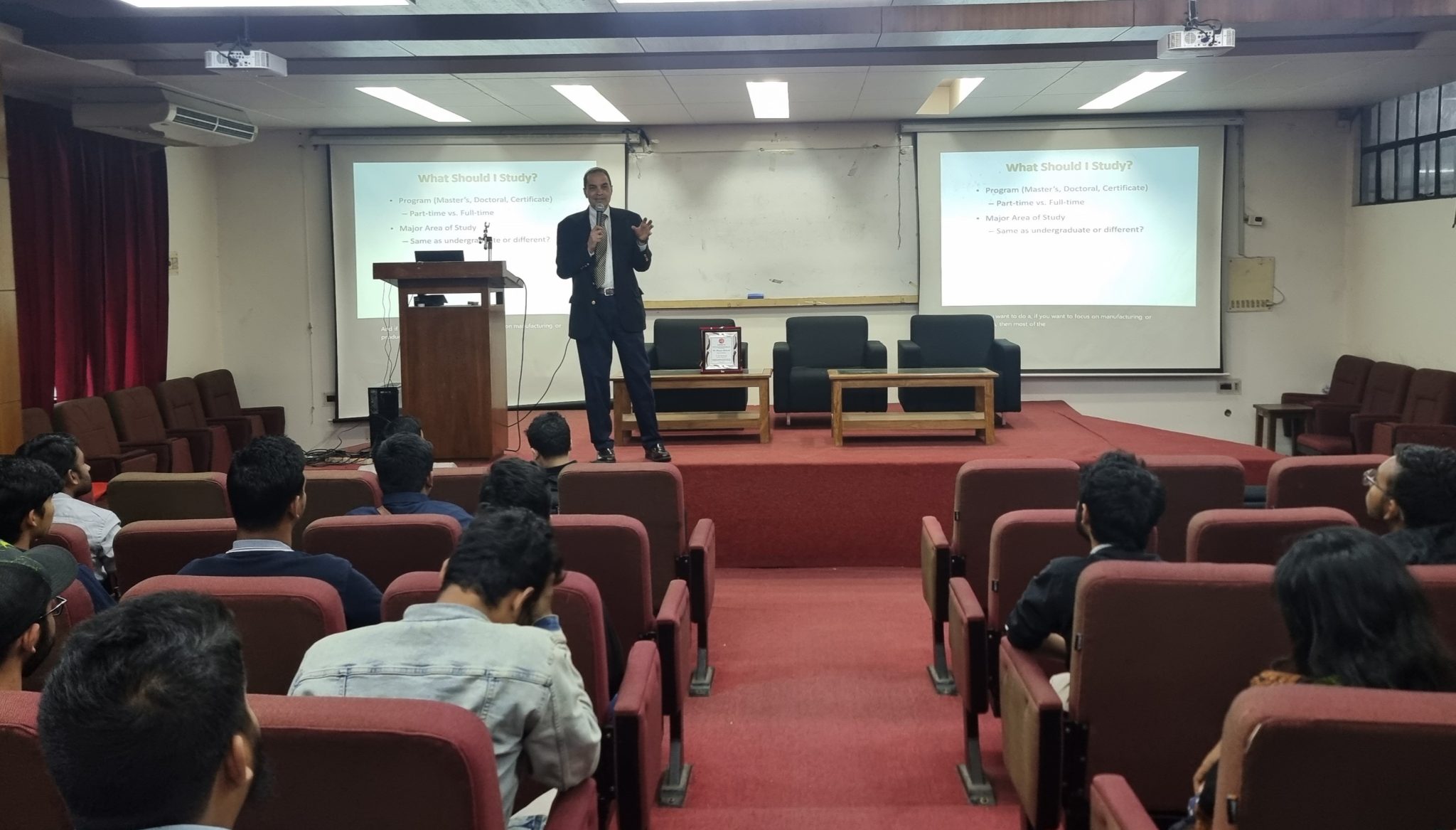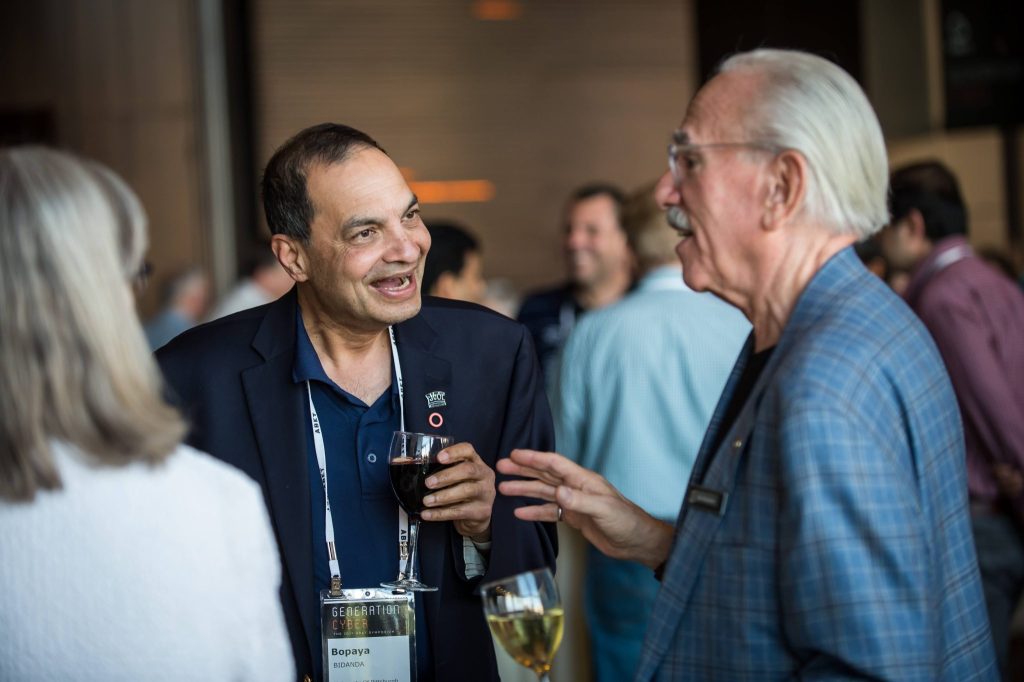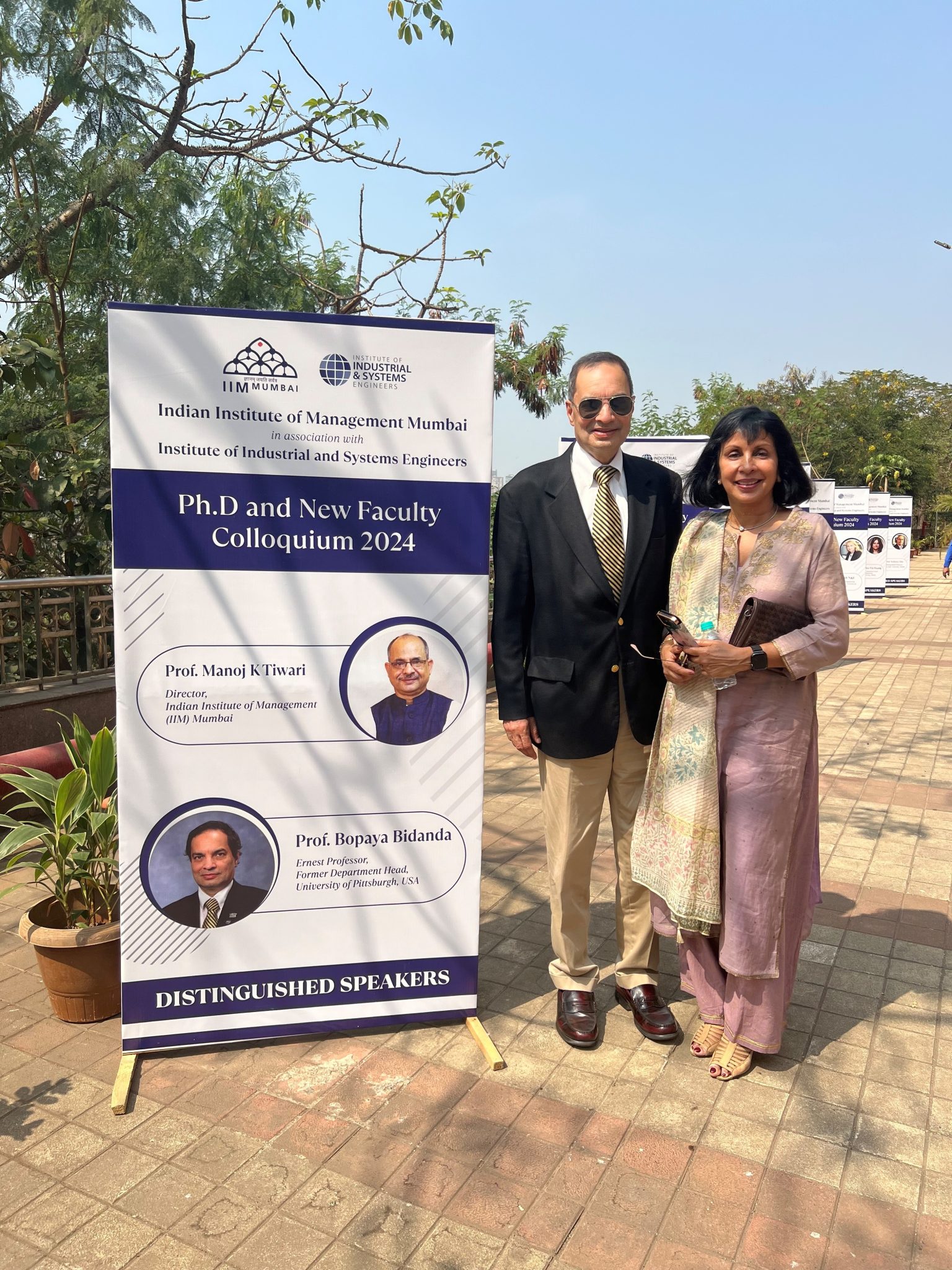Bopaya Bidanda, a name synonymous with excellence in engineering and education, has had a stellar year. Bidanda serves as the Ernest E. Roth Professor and is former Chair of Industrial Engineering at the University of Pittsburgh.
With a career spanning almost four decades, Bidanda has made significant contributions to the fields of manufacturing systems, engineering education and project management. As an accomplished academic, a dedicated mentor and a leader in professional societies, his journey is a shining example of the transformative power of education and mentorship.
Recognizing Outstanding Contributions
This past year has been particularly momentous for Bidanda, who received five prestigious awards that underscore his tremendous impact not only in the industrial engineering discipline, but in all of engineering. Most recently, Institute of Industrial and Systems Engineers (IISE) honored Bidanda with the Book of the Year Award for the 6th edition of the “Maynard’s Industrial and Systems Engineering Handbook,” which has been called the definitive body of knowledge in the field. This recognition is a representative illustration of his dedication to making complex engineering principles accessible, global and engaging. “Editing this handbook and choosing 130 authors from 30+ countries was a labor of love, and I am thrilled it has been so well-received,” he commented.
He also received the 2024 Frank and Lillian Gilbreth Industrial Engineering Award, the highest honor from IISE, recognizing his contributions to the discipline. Bidanda is the first to receive both this award and the Lillian Gilbreth Award from the Indian Institution of Industrial Engineering, which he received in December 2023. “Receiving these awards has been a highlight of my career, recognizing my contributions both in the U.S. and in India,” he remarked.
His scholarly contributions were further recognized with the 2024 IISE Transactions Best Paper Award, for his groundbreaking research in reverse engineering. Additionally, Bidanda received the Fulbright-Nehru Academic & Professional Excellence Award, allowing him to spend a sabbatical semester in India working on frugal engineering, a concept focused on designing value-based products for people at the bottom of the socio-economic pyramid.
Impact through ABET Accreditation
Bidanda’s involvement with ABET has been a cornerstone of his career. He is currently on the Board of Delegates as an area delegate representing IISE. He is also a member of the ABET Global Council and assigns program evaluators for IISE. He continues to serve as a mentor for team chairs on international visits. In the past, has served as chair of the EAC Training Committee that helped transition from the (a)-(k) student outcomes to the current (1)-(7) learning outcomes.
His leadership roles within ABET have allowed him to influence engineering education standards worldwide. Bidanda has played a pivotal role in shaping ABET’s accreditation criteria, leading revisions in program criteria for the industrial engineering and the Engineering Management disciplines, aligning these more closely with the needs of stakeholders and current curricula.
“Getting involved with ABET has definitely been one of the high points of my career,” he explained. “Representing ABET on a visit is a unique and bonding experience that you share with your team members.” Bidanda recalled experiences he had during site visits, including his first EAC visit, reading an exit statement underneath a table during a tornado warning.
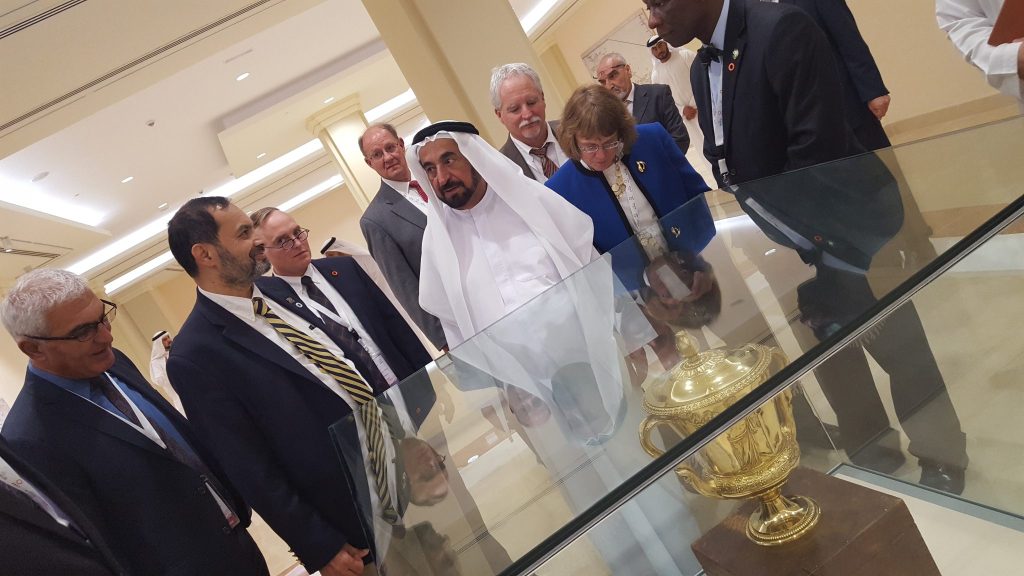
STEM Education and Mentorship
As a third-generation educator, Bidanda was inspired to make an impact on students’ lives. His favorite part of mentoring and educating is watching students grow from raw freshmen to polished graduates with successful careers. “I think anybody can take a bright, accomplished student and make her a superstar. It’s taking students that are ‘diamonds in the rough’ and watching them transform into stars that’s even more rewarding for me,” he said.
In 2001, Bidanda expanded his mentoring efforts by organizing Doctoral Colloquia through IISE and the International Foundation of Production Research (IFPR) in 2014 to help Ph.D. students build foundational skills, develop professional networks, and identify good mentorships. These workshops help provide a roadmap for academic and industrial careers. “Helping students make career choices, pointing students in the right direction in terms of their careers, has always been a driving force for me,” he explained. Bidanda has since developed and implemented additional doctoral colloquia in India during his Fulbright semester, through various host institutions and societies.
Reflecting on his career, Bidanda underscores the importance of lifelong learning and mentorship. “You never stop educating people. My mentors have taught me the value of flexibility and patience. No one can succeed without an army of mentors, and I’ve been fortunate to have that,” he said. He envisions a future where mentorship and enhanced collaboration play a pivotal role in shaping and leveling the playing field the next generation of global educators and engineers.
